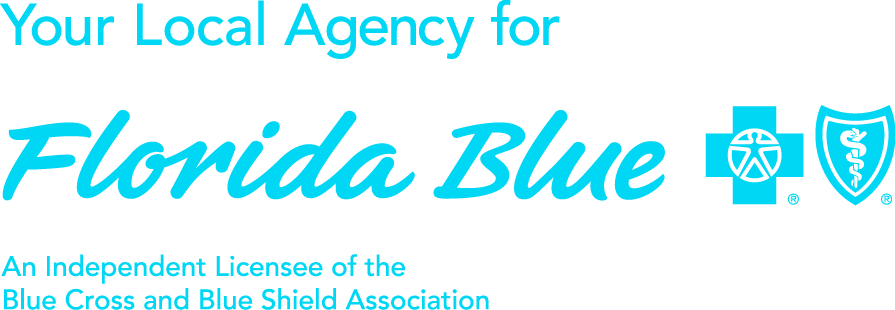Pros and Cons of Permanent Life Insurance

Permanent life insurance gives you lifelong coverage as long as you keep making your payments on time. Over time, the cash value of your permanent life insurance policy will grow. Some people, therefore, consider this type of life insurance an investment option that helps them prepare for retirement and other significant life events.
Accumulating cash value also makes permanent life insurance a popular option for people who want to make sure their loved ones receive enough money to cover funeral costs and provide financial security. Before looking at the pros and cons of a permanent life insurance policy, it's important to understand the basics of permanent life insurance.
What Are the Popular Types of Permanent Life Insurance?
Insurance companies have a variety of permanent life insurance policies. Learn about the options to make sure you choose insurance that will provide for you and your family.
Whole Life Insurance
Many people choose whole life insurance because monthly and annual payments stay the same throughout the policy’s life. If your first year of coverage costs $300, then you can expect to spend the same amount for as long as you keep the policy.
A whole life insurance policy also appeals to some people because it offers a guaranteed rate. When you get the policy, you know exactly how much your loved ones will receive from the death benefit. It allows you to get coverage when you are younger and lock in lower rates not available to you as you age. When you receive a whole life policy quote as a young, healthy individual, your premiums are much cheaper than if you were to wait until you are older.
Variable Life Insurance
Variable life insurance gives you more flexibility than whole life insurance. As your variable life insurance policy’s value grows, you can choose how to use the money. You may decide to put the money back into your plan to increase the value more. Your policy will also give you other options to consider.
Variable life insurance policy prices can change over time. Read the fine print of any policy to make sure you choose an affordable option that won’t suddenly become too expensive to buy.
Universal Life Insurance
Universal life insurance requires you to pay a minimum premium to keep the policy active. You can, however, choose to pay more than the minimum. The excess payment goes toward the policy’s value. You can also use the extra payments to cover future premiums.
Since universal life insurance has concrete cash value, you can use it as collateral when borrowing money. Having a policy, therefore, can make it easier for you to access low-interest loans without putting your house, vehicle, or other property at risk.
Guaranteed Universal Life Insurance
Guaranteed universal life insurance has fixed premiums throughout the policy’s life. It does not, however, carry much, if any, cash value. Since it doesn’t have a cash value, you cannot use it as collateral or an investment strategy.
Variable Universal Life Insurance
Variable universal life insurance combines the traits of variable and universal policies. You can pay any amount between a minimum and a maximum. If you make extra payments, you can skip future payments without losing the policy. You can also let the value accumulate.
Variable universal life insurance lets you choose between a few investment options. The investment aspect of variable universal life insurance works similarly to mutual funds.
Indexed Universal Life Insurance
Like other universal life insurance policies, you must pay an amount between an annual minimum and maximum. Additional payments can count toward future premiums.
The value of an indexed universal life insurance policy depends on an index. For example, your policy’s value might mimic the S&P 500’s performance. You cannot lose all of your investment, though, even if the index experiences a prolonged downturn. All of the policies have a minimum payout. They also have caps that can prevent you from making as much money as policy when an index’s performance rallies.
Is Permanent Life Insurance a Good Investment?
Plenty of experts disagree about whether permanent life insurance is a good investment. Those who dislike permanent life insurance as an investment say that people can get more robust returns through other investment options. Those who encourage people to use permanent life insurance point out that the policies ensure a minimum return that other investment options cannot guarantee.
Nearly all financial advisors, however, agree that people who invest in life insurance should choose a whole life option because they have known annual premiums and guaranteed growth rates. These features eliminate much of the risk that investors try to control.
Your expectations matter most when deciding whether permanent life insurance is a good investment strategy. If you want to maximize your returns, then a whole life insurance policy probably won’t meet your expectations. If you want to lower your investment portfolio’s overall risk, then you might want to add a whole life insurance policy that gives you a guaranteed return.
What Are the Problems With Permanent Life Insurance?
It’s important to understand the problems with permanent life insurance before paying for a policy. Keep in mind that the specifics of your policy may vary depending on factors such as your income level, age, number of dependents, and existing health problems.
Permanent Life Insurance Is Fairly Expensive
Compared to term life insurance, permanent life insurance policies have relatively high prices. That’s because whole life insurance policies are designed to last throughout your life. In some situations, a whole life policy can be six times costlier than term life insurance. You only pay for term life insurance policies, though, for as long as you need them. You may choose to end the coverage once you repay your mortgage, your dependents move away from home, or you save enough money to keep your family financially secure without help from insurance.
Permanent Life Insurance Is More Complicated Than Term Life
With at least six types of permanent life insurance to consider, it’s easy to see why it’s considered more complicated than term life insurance policies. With term life insurance, you pay a set premium every month or year. If you die while you have the policy, then the death benefit will pay a predetermined amount of money to your beneficiaries. If you decide to cancel the policy, you close it and stop making payments.
With permanent life insurance, though, you have to weigh the pros and cons of whole life, variable life, universal life, and other types of policies. Many people get confused because they need to compare so many options. It doesn’t help that the payout of some policies depends on how well a market or index performs.
What Are the Benefits of Permanent Life Insurance?
There are a couple of problems with permanent life insurance, but the policies can also give you a lot of benefits.
Permanent Life Insurance Has Tax Benefits
Depending on the details of your permanent life insurance policy, you can take advantage of several tax benefits. More often than not, the death payout does not get taxed, so your family will not have to pay taxes on the money they receive. You will have to pay taxes on your premiums, but you do not pay taxes on money earned from the policy’s growth. Any dividends or extra value that you get from your policy does not get taxed.
Some Permanent Life Policies Pay Dividends
Life insurance companies assume that permanent life insurance policies will grow at a specific rate. If the policy grows more than expected, then you can get paid a dividend. You can take the dividend as cash. You can also use the dividend to pay future premiums or reinvest the amount in your policy.
Permanent Life Insurance Is an Asset
As the value of your permanent life insurance policy grows, you can use it like any other asset. For example, you may use it as collateral when you borrow money from a bank. By using collateral, you may qualify for a lower interest rate.
Permanent Life Insurance Has Fixed Costs
Permanent life insurance has a fixed payment amount. Your insurance company may let you choose between annual and monthly payments. Regardless of the option you choose, you will pay the same amount every time.
Having a fixed cost means that you always know how much you will need to pay. It can also help you plan for paying premiums over the next several years or decades.
Permanent Life Insurance Can Guarantee Returns
Whole life insurance gives you a guaranteed return on your investment. Even if you choose policies connected to markets or indexes, you will get paid a minimum amount. Ideally, your policy will accumulate more value than you expect. When that happens, you will get a higher return. Keep in mind, though, that some policies have maximum payouts that will cap your profits.
What Are the Pros and Cons of Permanent Life Insurance?
Taking a close look at your life insurance options will help you choose a policy that matches your financial needs and expectations. There are some pros and cons to consider when looking at a permanent life insurance policy.
In summary, some key benefits of permanent life insurance include:
-
Protecting some of your income from taxes.
-
Balancing the risks of other investments.
-
Getting paid dividends when the insurance performs better than expected.
-
Stable premiums that will not change as long as you pay on time.
-
Minimum returns on your investment.
The negatives of permanent life insurance include:
-
Choosing the right policy from so many options.
-
Paying higher prices than people who get term life insurance
If the situation is right for you, the pros can certainly outweigh the cons of whole life. While you wouldn’t want to count on permanent life insurance as your exclusive investment strategy, many people benefit from getting reliable policies that give them guaranteed returns and accumulates value over time.
Still have questions about permanent life insurance? Looking for a quote? The experts and insurance agents at PolicyScout can help you look at a life insurance solution that will work best for you and your loved ones.
‹ Back






Comments